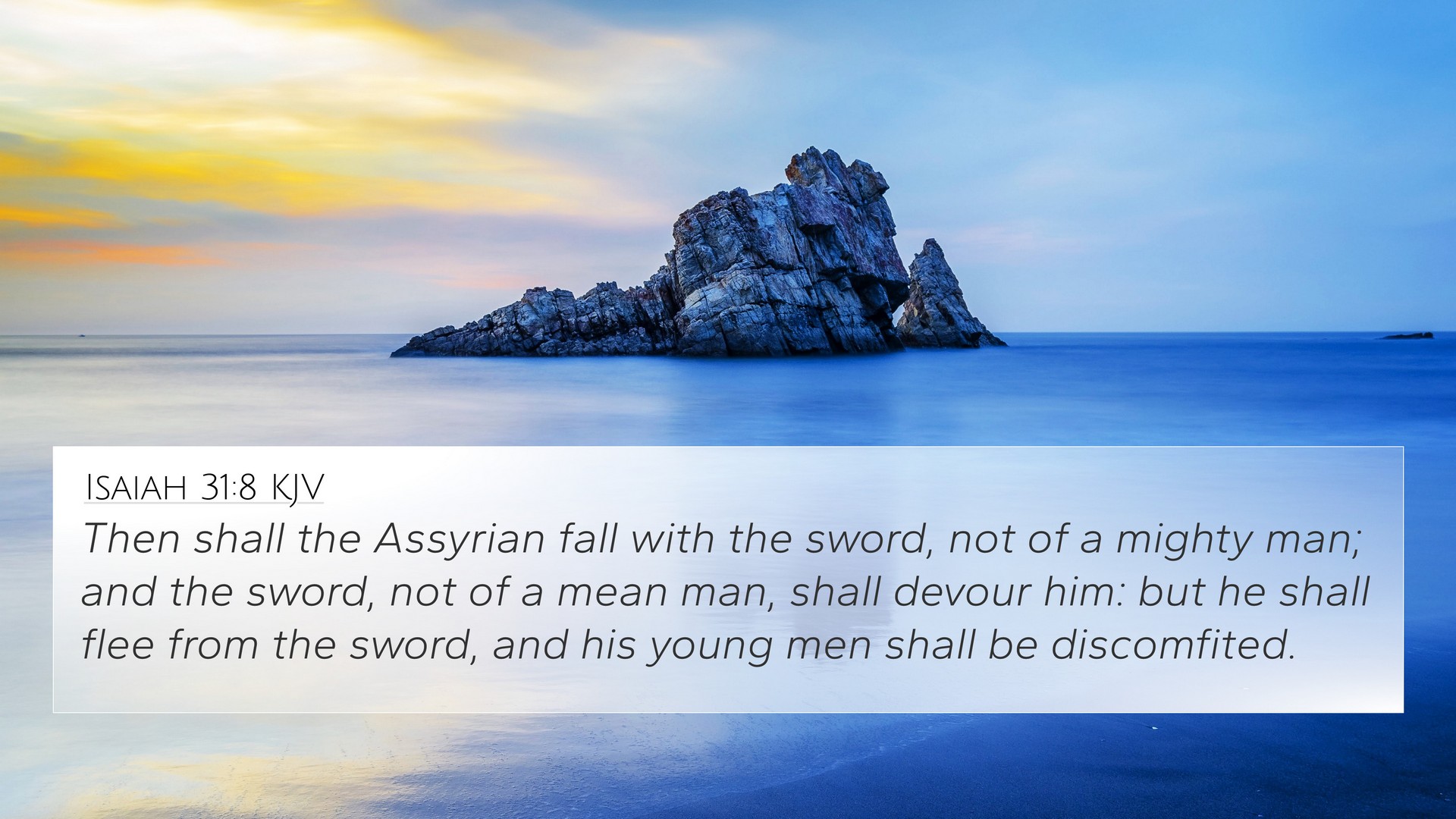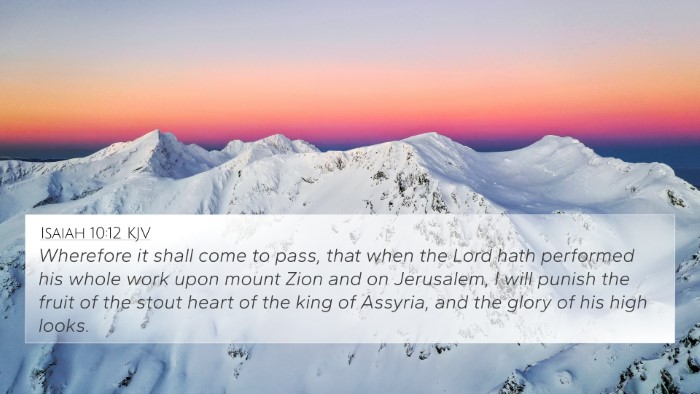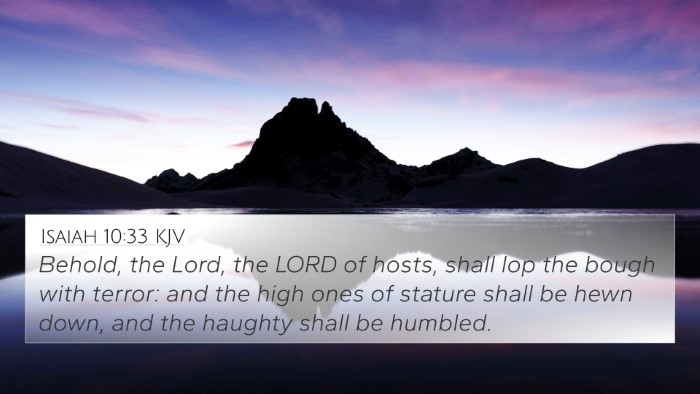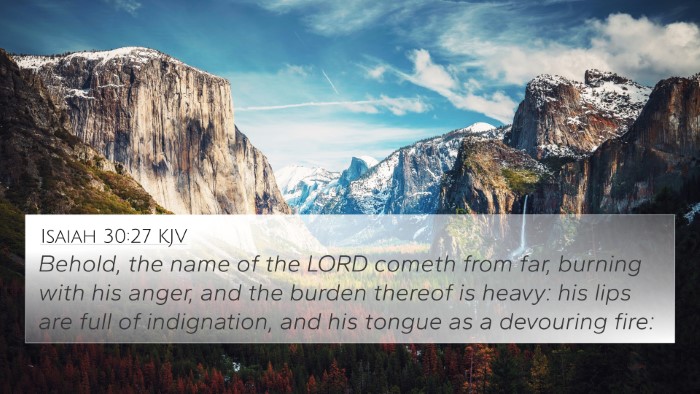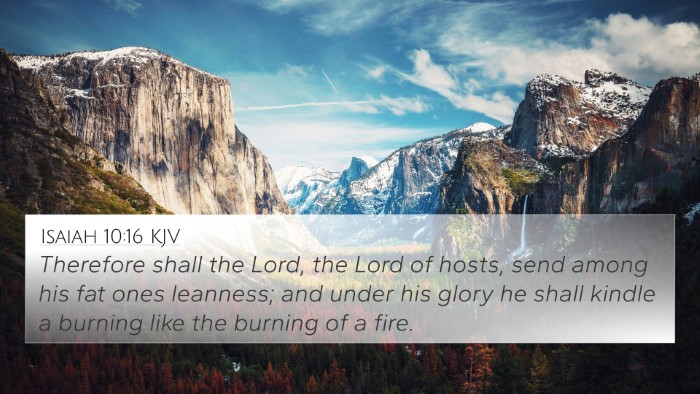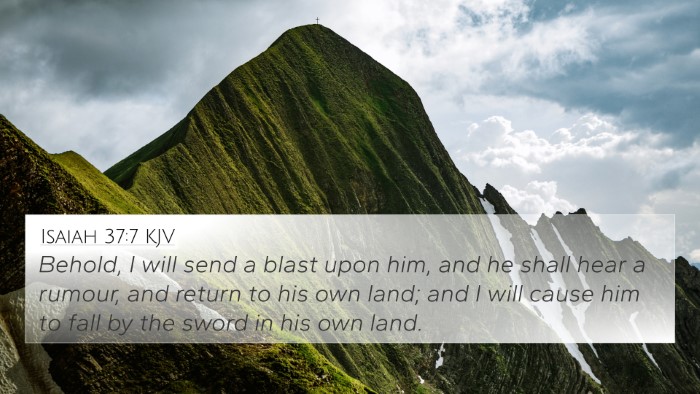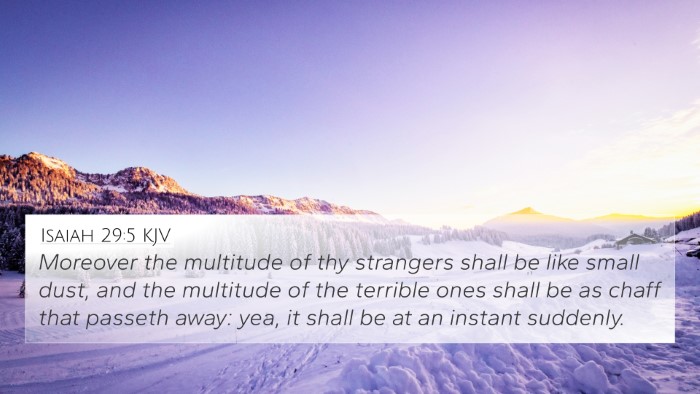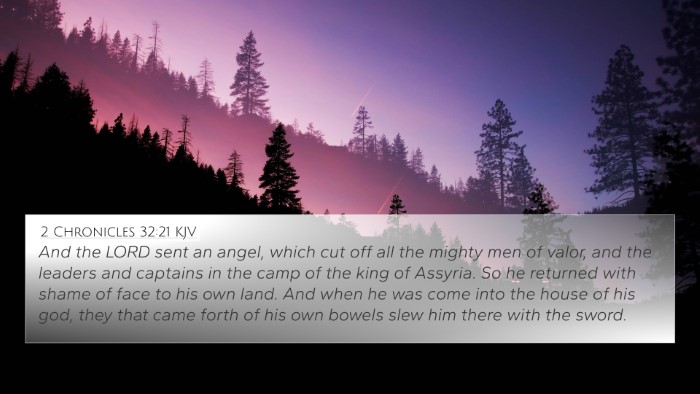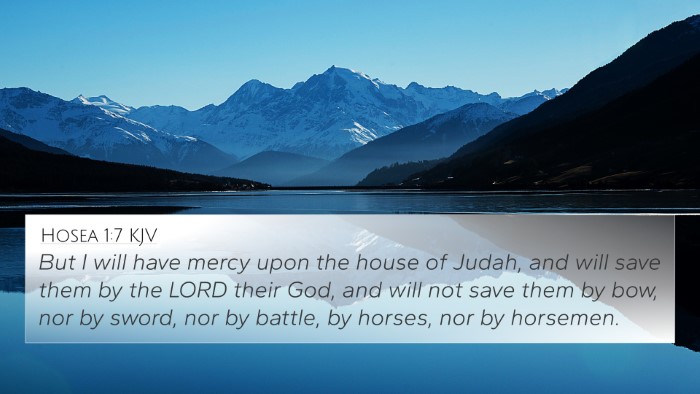Understanding Isaiah 31:8
Isaiah 31:8 states: "Then shall the Assyrian fall with the sword, not of a mighty man; and the sword, not of a mean man, shall devour him: but he shall flee from the sword, and his young men shall be discomfited."
Overview
The verse presents a powerful prophecy concerning the downfall of the Assyrian empire. It emphasizes that the defeat of Assyria will not be through human strength or tyranny, but through divine intervention, showcasing God's sovereign control over the fate of nations.
Meaning and Interpretation
- Divine Sovereignty: According to Matthew Henry, this verse illustrates the authority of God over human affairs. The Assyrian army, despite its might, will be vanquished not by stronger men, but by God's hand.
- Prophetic Assurance: Albert Barnes interprets this passage as a message of hope for the Israelites. God assures them that He will protect them from the oppressive Assyrian forces.
- Symbol of Fear: Adam Clarke highlights that the Assyrians represent spiritual foes as well, suggesting that God’s power can also conquer metaphorical strongholds in our lives.
Thematic Connections
The themes of divine deliverance and the futility of human strength in the face of God's will are prevalent in various scripture passages. Here are some key Bible verse cross-references and their insights:
- Psalm 33:16-17: "There is no king saved by the multitude of an host: a mighty man is not delivered by much strength." This reiterates the idea that reliance on human power is unfruitful without God's favor.
- Isaiah 10:33-34: "Behold, the Lord, the Lord of hosts, shall lop the bough with terror: and the high ones of stature shall be hewn down, and the haughty shall be humbled." This illustrates God's judgment against prideful nations.
- Jeremiah 46:6: "Let not the swift flee away, nor the mighty man escape; they shall stumble, and fall toward the north by the river Euphrates." Here, God promises that even the strongest will not evade His judgment.
- Romans 8:31: "If God be for us, who can be against us?" This New Testament affirmation encapsulates the idea of divine protection against all adversities.
- 2 Chronicles 20:15: "Thus saith the Lord unto you, Be not afraid nor dismayed by reason of this great multitude; for the battle is not yours, but God's." Reinforces the belief in God's intervention against seemingly insurmountable odds.
- Isaiah 37:36: "Then the angel of the Lord went forth, and smote in the camp of the Assyrians an hundred and four score and five thousand..." A prophetic fulfillment of God's promise to defend His people from Assyrian aggression.
- Psalm 20:7: "Some trust in chariots, and some in horses: but we will remember the name of the Lord our God." A reminder of where true strength lies, contrasting human reliance with faith in God.
Practical Applications
Cross-referencing Biblical texts allows believers to draw deeper insights and apply them to contemporary life. Understanding that divine power outweighs human strength encourages faith in God's plans during personal trials or societal upheavals. Here’s how believers can apply the lessons from Isaiah 31:8:
- In times of crisis: Reflect on God's promise of protection and deliverance rather than rely solely on human resources.
- For personal challenges: Embrace the assurance that God fights our battles, encouraging a mindset of trust and surrender.
- In spiritual warfare: Recognize that struggles against sin and temptation can be overcome through reliance on God's strength.
Conclusion
Isaiah 31:8 stands as a potent reminder of God’s sovereignty over nations and individuals alike. It encourages Christians to bolster their faith and encourages hope amid trials in life or the broader scope of societal threats. As we explore the connections between Bible verses, Isaiah 31:8 echoes throughout scriptures, confirming the unified theme of divine intervention and protection. In this way, we can utilize tools for Bible cross-referencing to gain a richer understanding of God's word and the promises made therein.
